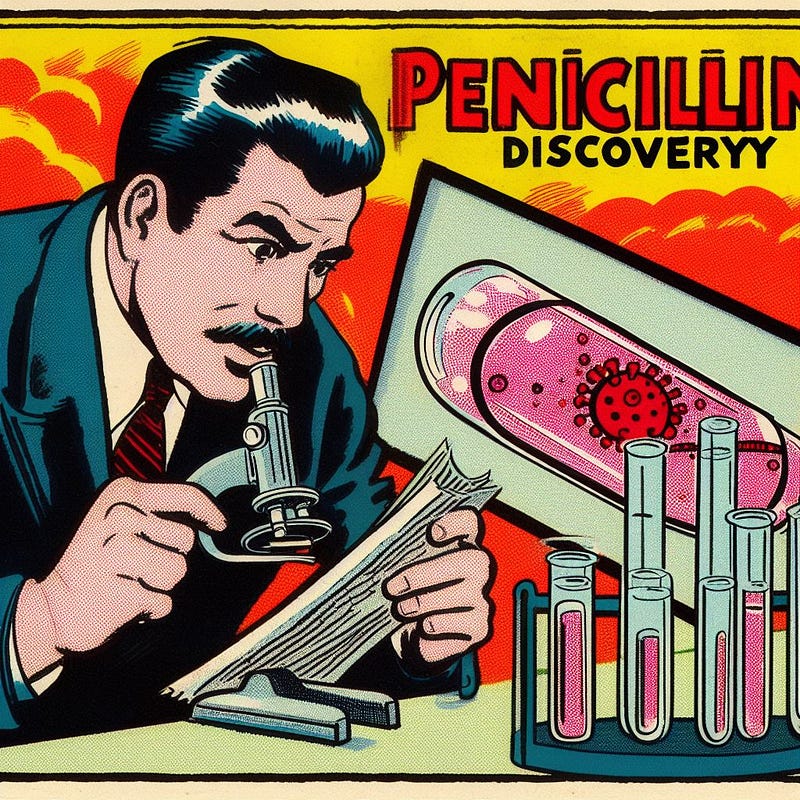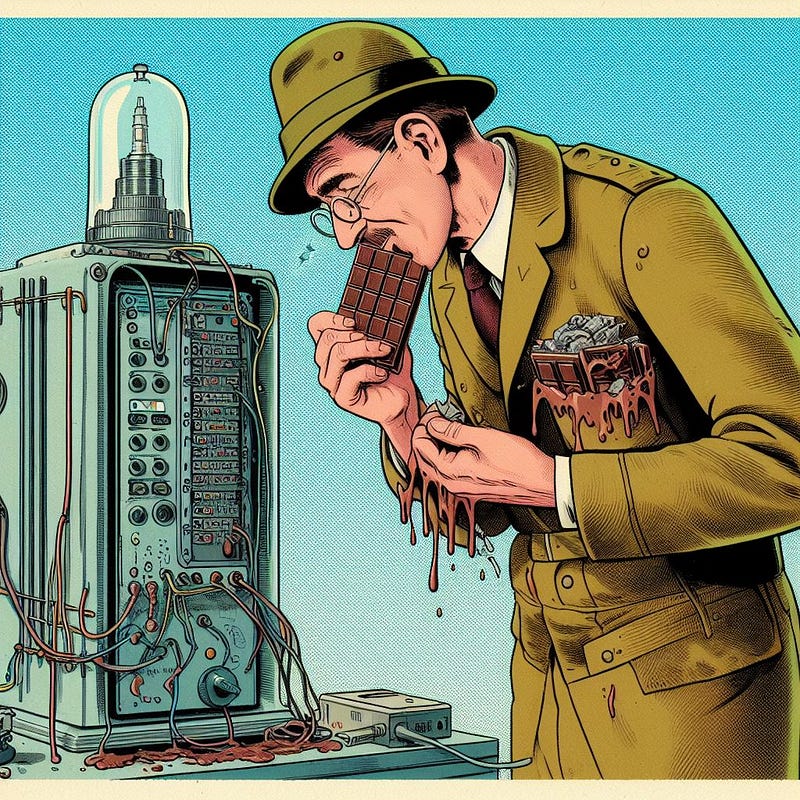# Accidental Innovations: Remarkable Discoveries of WWII
Written on
Chapter 1: Surprising Discoveries Amidst Chaos
During World War II, the intense competition among scientists to develop groundbreaking innovations often led to unexpected discoveries. The unpredictable nature of the natural world acted almost like a playful child, surprising researchers with new insights and reminding them that there is always more to uncover. Many of these accidental breakthroughs have had a lasting impact on our daily lives today. Can you guess what some of these discoveries might be?

Penicillin: A Transformative Accident
Picture this: Sir Alexander Fleming returns to St. Mary’s Hospital in London after a leisurely summer vacation, only to find his laboratory in disarray. While most might reach for a broom, Fleming, with his keen scientific eye, notices a peculiar mold growing on a Petri dish and thinks, “This is intriguing.” Observing through his microscope, he sees that the bacteria surrounding the mold are dying off like soldiers in retreat. This mold, later identified as Penicillium, was producing the world's first antibiotic.
In a pivotal moment in 1944, 21 American companies collaborated to manufacture 2.3 million doses of penicillin, akin to a wartime elixir, in preparation for the Normandy invasion. This effort was more than just a typical pharmaceutical endeavor; it resembled a superhero team assembling to aid the injured. Penicillin swiftly became known as the "miracle drug" of the war, effectively combating infectious diseases and saving countless lives. Who would have imagined that a mere mold could become such a vital ally?
The Science of the Second World War: Inventions
This video delves into the scientific advancements that emerged during World War II, highlighting the inventions that shaped modern medicine and technology.
Super Glue: The Accidental Fixer
Can you envision a handyman managing without Super Glue? It’s akin to a chef trying to cook without essential spices. Discovered by Dr. Harry Coover in 1942 while working on precision gun sights at Eastman Kodak, Super Glue emerged as an unforeseen hero for household repairs.
While attempting to create a transparent plastic, Coover and his team stumbled upon cyanoacrylate, an adhesive they initially overlooked due to its powerful bonding characteristics. One can almost visualize their expressions as they struggled to unstick their fingers! Although set aside for years, Dr. Coover revisited cyanoacrylate in 1951 and recognized its potential as a rapid-bonding adhesive. By 1958, Eastman Kodak launched “Eastman #910,” the first cyanoacrylate glue, branding it as Super Glue. Suddenly, homes had a magical solution for repairs, albeit often unintentionally gluing fingers together! The next time you witness a broken item miraculously restored, it’s likely the handiwork of Super Glue, the unintentional hero of adhesives.
Unintentional Eureka Moments: Incredible Accidental Discoveries
This video showcases some of history's most remarkable accidental discoveries, revealing how unexpected moments have led to significant advancements.
Microwave: A Sweet Discovery
Have you heard the tale of the engineer who accidentally melted his chocolate and transformed kitchen technology forever? In 1945, Percy Spencer, an American engineer at Raytheon, made the groundbreaking discovery of the microwave oven by chance. While experimenting with a new type of electron tube called a magnetron, Spencer felt compelled to check on a chocolate bar in his pocket, only to find it had melted!
Whether he was disheartened about losing that chocolate or intrigued by the phenomenon, he was certainly motivated to explore further. Spencer experimented with other foods, discovering that popcorn and eggs would explode when exposed to microwave energy!
This serendipitous discovery led to the creation of the first microwave oven. In 1947, Raytheon filed a patent for Spencer’s invention, and by 1949, the first commercial microwave oven, known as the Radarange, was available. This innovation revolutionized cooking, providing a swift and efficient method for heating and preparing meals. Spencer’s accidental encounter with melted chocolate ignited a culinary revolution.

Chapter 2: The Legacy of Accidental Discoveries
As we reflect on these remarkable accidental discoveries, it’s clear that the unpredictable nature of scientific exploration can lead to innovations that change the world. Whether it’s the lifesaving properties of penicillin, the convenience of Super Glue, or the transformative capabilities of the microwave, these inventions remind us that sometimes, the most significant advancements arise from the most unexpected situations.